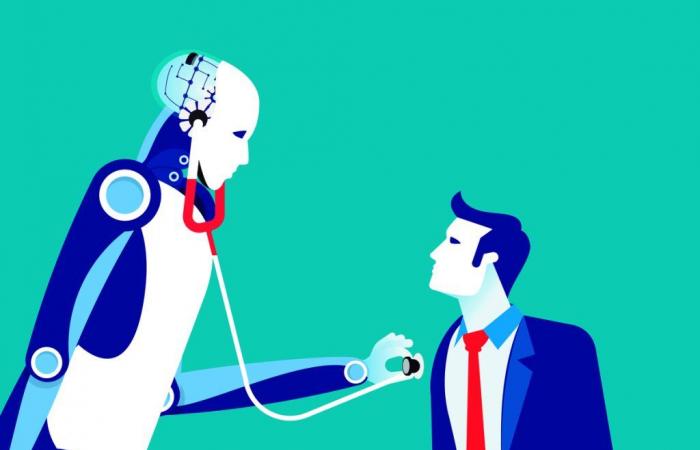Diego Delgado
Internists reflect on the impact of AI on the doctor-patient relationship at an event organized by SEMI
AI increasingly covers more professional fields, and medicine is no exception. Internists from all over the country gathered at the IX Bioethics and Professionalism Meeting of the Spanish Society of Internal Medicine (SEMI). Held in Madrid and under the motto “Ethical reflections on Artificial Intelligence and New Technologies”, they discussed extensively the role of AI in medicine. In particular, they investigated the doctor-patient relationship, the privacy and responsibility of the health professional.
The event was inaugurated by Dr. Manuel Méndez, general secretary of SEMI, and Dr. Antonio Blanco, coordinator of the SEMI Bioethics and Professionalism Group. In addition, it had the participation of entities such as the José Ortega y Gasset-Gregorio Marañón Foundation or the Spanish Society of Intensive Nursing and Coronary Units (SEEIC). Universities such as Barcelona or the Pontifical University of Comillas also made their contributions.
AI and clinical ethics
Internists highlighted that AI already has the capacity to perform complex tasks in the medical field. From reading electrocardiograms and interpreting imaging tests and diagnosing skin lesions, to performing follow-ups and making predictions of recurrence and mortality.
However, these advances raise ethical and practical questions for professionals and the healthcare system. Dr. Antonio Blanco emphasized that, although AI can provide greater precision and quality in medical decision making, it is crucial to understand its risks and how these systems work.
“Humanism must govern quality medical practice. If we aspire to the ethical applicability of AI in our field of work, we must know in depth how these systems work, what their risks are and what decisional elements to pay attention to”he claimed.
Likewise, internists agreed that it is necessary to train health professionals in the ethical and effective use of AI. “Not only doctors, but also computer engineers must be integrated into bioethics concepts to ensure equity, justice and dignity in the development of AI technologies”said Blanco.
According to experts, a comprehensive and humanistic approach is essential to lead and control this technological revolution in medicine.
Risks of AI in Medicine
One of the main risks identified is potential alienation and burnout if doctors begin to rely excessively on AI. “Assuming or delegating decisions to AI could mean a definitive break in trust and a rupture of the doctor-patient relationship”Blanco warned.
Additionally, privacy is a central concern. “The more data you have, the more secure the AI systems will be, but there will also be a greater risk of violating confidentiality”White explained. The need to apply explainable Artificial Intelligence systems to ensure reliability and usability in a medical environment was also discussed.
At the event, topics such as telemedicine, legislation in the field of AI in medicine and equity in the distribution of resources were also addressed. All of them oriented and debated within a framework of the digital and technological era.






